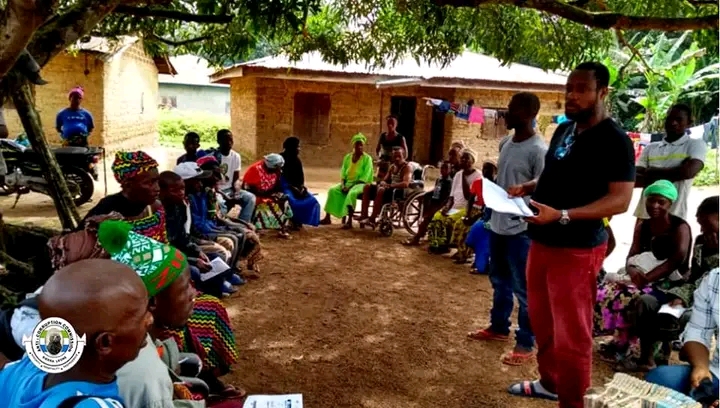The Anti–Corruption Commission (ACC) on the 1st of November 2022, joined the Project Implementing Partner, the National Commission for Social Action (NaCSA), and the Payment Service Provider (Rokel Commercial Bank) to monitor the cash payment process under the Social Safety Net Project in 8 districts.
The Social Safety Net (SSN) Project commonly called “Ep Fet Po” is aimed at establishing core social protection systems and progressively expanding the coverage of cash transfers to extremely poor households in Sierra Leone.
The beneficiary households are expected to use the cash to respond to basic household needs such as food, health, and children’s education, and for small-scale business investments (petty trading).
The ongoing cash transfer is the first phase of the COVID–19 Ep Fet Po Cohort II which is taking place in Port Loko, Kambia, Karene, Bombali, Falaba, Bonthe, Moyamba, and Kono Districts.
The Anti-Corruption Commission (ACC) is responsible for monitoring the payment of cash to registered beneficiaries and recording grievances from beneficiaries, stakeholders, and other community members as the project implementation progress using paper and electronic tools (ODK in smartphones) which will then be uploaded in the Grievance Redress Mechanism (GRM) web-based platform.
Grievances under the SSN Project, which are complaints or dissatisfactions emanating from project beneficiaries, stakeholders, and other community members, are handled from two perspectives namely; corruption-related complaints and administrative complaints. When the case for complaints is classified by the Commission’s data Operator, the administrative complaints are electronically referred to the other partners–in this case, NaCSA or RCB.

The GRM Desk staff in the partner Agency receives the complaints on behalf of the entity, supervises and coordinates their resolution, and updates the platform accordingly.
On the other hand, all corruption-related complaints are retained in the system and handled by the ACC following the normal corruption handling procedures. After resolution actions have been taken in both cases –from the end of NaCSA and RCB on one hand and the ACC on the other, feedback is provided to the complainants.
This monitoring role is part of the ACC’s “Corruption Prevention Strategy” in the Social Safety Net Cash Transfer Project.
A total of 45 teams have been assigned to the 8 beneficiary districts, for the ongoing payment. Each team comprises 1 NaCSA staff, 2 RCB staff, and 1 ACC staff.
The payment exercise at every pay point starts with the engagement of beneficiaries and community stakeholders in an open meeting. On the part of the ACC, the key messages are centered on the stance of the ACC against corruption in the Social Safety Net Project implementation with no hesitation to investigate and prosecute persons engaged in any corrupt practices during and after the payment exercise.
Across the 8 districts, a total of 12,092 households are to benefit from the cash transfer with each beneficiary household receiving One Thousand, Three Hundred and Nine Leones (Le 1,309) as the first tranche benefit. At every pay point, ACC staff members are present to ensure that each of the beneficiary households receives the full amount with no short-payment of money extorted from the beneficiary after payment.
The second phase of the SSN COVID–19 Cohort II cash transfer will take place in the remaining 8 districts (Western Area Urban, Western Area Rural, Kenema, Kailahun, Bo, Pujehun, Tonkolili, and Koinadugu) upon completion of this first phase.











